CCCLXXVIa. HAYDN, Franz Joseph (1732-1809)
Celia, real name Fillide
Fileno, lover of Fillide
Amaranta, a vain and arrogant lady
Count Perruchetto, a count of extragavant disposition
Nerima, a nymph, fickle in love, enamoured of Lindoro
Lindoro, Amaranta's brother
Melibeo, high priest, in love with Amarant
Diana
Fileno, lover of Fillide
Amaranta, a vain and arrogant lady
Count Perruchetto, a count of extragavant disposition
Nerima, a nymph, fickle in love, enamoured of Lindoro
Lindoro, Amaranta's brother
Melibeo, high priest, in love with Amarant
Diana
**
Haydn -- during his most prolific period -- wrote this opera for the newly-built opera theatre in Esterhazá after the old one burned down.
Haydn -- during his most prolific period -- wrote this opera for the newly-built opera theatre in Esterhazá after the old one burned down.
**
The people of Cumae worship Diana, goddess of hunting and chastity. Their rites however have been defiled by a nymph whose treachery has brought a curse on them. To propitiate the angry goddess, two faithful lovers must be sacrificed each year to a lake monster until a faithful lover can be found to offer his own life. Fidelity, therefore, is at a premium in Cumae, and victims are hard to find.
The plot is "part thriller about lovers being sacrificed to a monster, part burlesque sending up pseudo-classical and early romantic emotions."
The people of Cumae worship Diana, goddess of hunting and chastity. Their rites however have been defiled by a nymph whose treachery has brought a curse on them. To propitiate the angry goddess, two faithful lovers must be sacrificed each year to a lake monster until a faithful lover can be found to offer his own life. Fidelity, therefore, is at a premium in Cumae, and victims are hard to find.
The plot is "part thriller about lovers being sacrificed to a monster, part burlesque sending up pseudo-classical and early romantic emotions."
**
1. Sinfonia
1. Sinfonia
Mozart would recycle this for the finale of Symphony #73.
The "Diana/hunting" motif is quickly introduced:
Act One
Scene I
2. Introduzione
Bella dea (Beautiful gods)
The orchestra, followed by the full chorus, and then three soloists, Nerima, Lindoro and Melibeo:
Melibeo presides over preliminary rites on a day of sacrifice, assistend by Lindoro and Nerima, whose affair is coming to an end; Lindoro is tired of Nerima and hopes for a liaison with the shepherdess "Celia."
The orchestra, followed by the full chorus, and then three soloists, Nerima, Lindoro and Melibeo:
Melibeo presides over preliminary rites on a day of sacrifice, assistend by Lindoro and Nerima, whose affair is coming to an end; Lindoro is tired of Nerima and hopes for a liaison with the shepherdess "Celia."
Melibeo
Scene II
Intoduzione
Prendi, prendi, o Cintia (Get it, get it, Cintia)
Amaranta
Lindoro's sister, Amaranta, recently arrived in Cumae, comes to worship. She is on the look-out for a lover but startled to hear of the risk in true love.
Introduzione
Bella dea (Beautiful gods)
Amarante, Nerima, Linodoro, Melibeo and Chorus
Amarante, Nerima, Linodoro, Melibeo and Chorus
3. Recitativo
Non più (Not anymore)
Melibeo, Amaranta, Nerima, Lindoro
Melibeo suggests that as High Priests are exempt, she might give her attentions to him. She agrees, on condition that he favours her brother's suit with Celia.
Scene III
Recitativo
Melibeo, a dispetto di quella impertinente (Melibeo, in spite of the impertinent one)
Amaranta, Lindoro, Melibeo
4. Aria
Già mi sembra di sentire (I already seem to hear)
Lindoro
Scene IV
5. Recitativo
Di tuo fratello al pari (Like your brother)
Melibeo, Amaranta
6. Aria e Recitativo accomp.
Per te m'accese amore (For you it kindled love)
Amaranta, Melibeo
7. Aria
Salva, salva . . . aiuto, aituo (Save, save, help, help)
Perruchetto
Perruchetto, a traveller, philanderer and coward arrives claiming to have been chased by robbers. His racing pulse quickens when he sees Amaranta, to whom he swiftly declares love.
8. Recitativo
Signor, er ristorarvi (Sir, refresh yourselves)
Melibeo, Perruchetto, Amaranta
Amaranta is overcome, especially when discoverying that Perruchetto is a Count. Melibeo threatens Perruchetto, who reacts by billeting himself on the High Priest.
9. Aria
Mi dica, il mio signore (Tell me, my lord)
Melibeo
Scene V
10. Recitativo
Corpo di Bacco! (body of Bacchus!)
Perruchetto, Aramanta
Scene VI
11. Aria
Dove, oh dio (Where, oh god)
Fileno
The young shepherd laments the death of his beloved Fillide (Celia) killed by a snake.
12. Recitativo
Chi mai provò nell' alma (Whoever tried with the soul)
Fileno
Scene VII
Recitativo
Che amabil giovinetto! (What a lovely young man!)
Nerima, Fileno
Fileno is told by Nerima of Lindoro's desertion and she begs him to plead on her behalf; He agrees (not realising that this is his beloved).
Fileno is told by Nerima of Lindoro's desertion and she begs him to plead on her behalf; He agrees (not realising that this is his beloved).
13a. Aria (first version)
È amore di natura (It is love of nature)
Nerima
13b. Aria (second version)
È amore di natura (It is love of nature)
Nerima
The two versions seem exactly the same, except 13a is in C Major, while 13b is a step higher, in D Major:
Scene VIII
14b. Aria (second version)
Placidi ruscelletti (Placid brooks)
Celia
Celia arrives with her sheep in search of her lover Fileno and sleeps amongst her flock.
14c. Aria (third version)
Placidi ruscelletti (Placid brooks)
Celia
Same as 14b, but raised a minor third, to E-Flat Major.
15. Recitativo
Misera Fille (Miserable girl)
Celia
Scene IX
Recitativo
Vedi colei, che dorme? (Do you see her sleeping?)
Nerima, Fileno, Lindoro, Celia
Nerima returns with Fileno, who, to his amazement and delight recognises Celia -- alive and well. He is unaware of the fatal penalty awaiting faithful lovers, but Celia, spotting Melibeo waiting to pounce, spurns Fileno to save his life: naturally he is angry and desolate.
Scene X
Recitativo
Lo vedi quel briccone? (Do you see that rascal?)
Lindoro, Melibeo, Fileno, Celia
Scene XI
Recitativo
Cosa fu? Che rumore? (What was that noise?)
Amaranta, Perruchetto, Celia, Fileno, Melibeo, Lindoro
Fileno, intent on self-destruction, goes off followed by Celia, who is followed by Lindoro and Perruchetto, who sees in Celia a more enticing prospect than Amaranta, who in turn is offended and turns back to Melibeo. Perruchetto, rejected by Celia, returns to make peace with Amaranta but then chases, Nerima, infuriating Amaranta.
16. Aria
Miseri affetti miei (My poor affections)
Fileno
Scene XII
Recitativo
È partito (He left)
Scene XIII
Recitativo
Perfido conte (Perfidious Count)
Amaranta, Perruchetto, Nerima, Lindoro
18. Aria
Vanne . . . fuggi . . . traditore! (Flee, traitor!)
Amaranta
Scene XIV
19. Recitativo
Non occorrono pianti (No tears are needed)
Melibeo, Celia
Scene XV
Recitativo
Misera me, qual legge! (Miserable me, what law!)
Celia, Nerima
20a. Aria (first version)
Deh soccorri un infelice (Please help an unhappy one)
Celia
20b. Aria (second version)
Deh soccorri un infelice (Please help an unhappy one)
Celia
20a in E-Flat, 20b in F ...
20a in E-Flat, 20b in F ...
Scene XVI
21. Recitativo
Ah pur troppo m'avveggo (Ah, unfortunately I am too aware)
Nerima, Perruchetto
22. Aria
Coll' amoroso foco (With loving fire)
Perruchetto
Scene XVII
23. Recitativo
E si sdegna di più (And he is more indignant)
Amaranta, Melibeo, Lindoro
Melibeo tries to blackmail Celia into the match with Lindoro suggested by Amaranta -- she must consent or else die with Fileno. Celia asks Nerima to warn Fileno that his life is in danger. Although Nerima agrees to help -- as she has now fallen in love with Fileno -- her help is not altogether disinterested.
24. Finale
Questi torti, questi affronti (These wrongs, these confrontations)
Amaranta, Lindoro, Melibeo
As the first act reaches its climax, Melibeo has Fileno tied up. Fileno curses Celia when he learns she is to marry Lindoro. At this point, Nerima enters pursued by satyrs who carry off numerous nymphs, including Celia.
(Finale)
Ah non tremarmi tanto (Ah, don't shake me so much)
Celia, Lindoro
(Finale)
Ah villana (How rude!)
Amaranta, Nerima, Lindoro, Perruchetto, Melibeo
(Finale)
Lasciami (Leave me)
Celia, Amaranta, Lindoro, Perruchetto, Melibeo
(Finale)
Se non si trova, oh dio (If not found, Oh god)
Celia, Amaranta, Fileno, Perruchetto, Melibeo
(Finale)
T'intendo, sì, spietata (I understand you, yes, merciless)
Celia, Amaranta, Fileno, Lindoro, Perruchetto, Melibeo
(Finale)
Aiutatemi (Help me)
Celia, Amaranta, Nerima, Fileno, Lindoro, Perruchetto, Melibeo


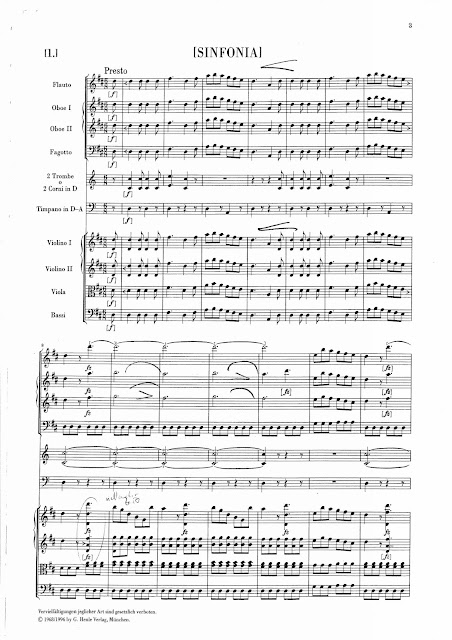

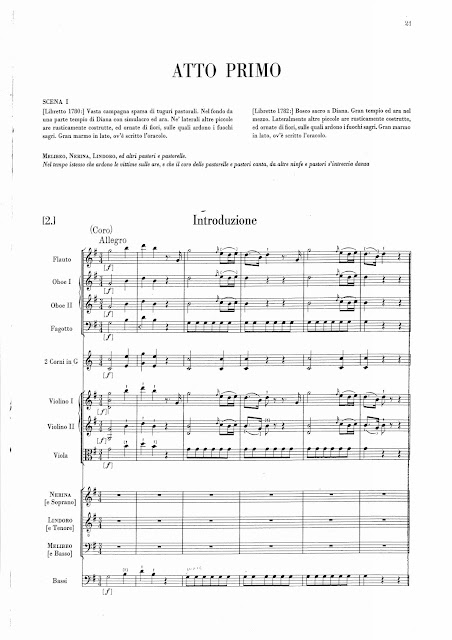



















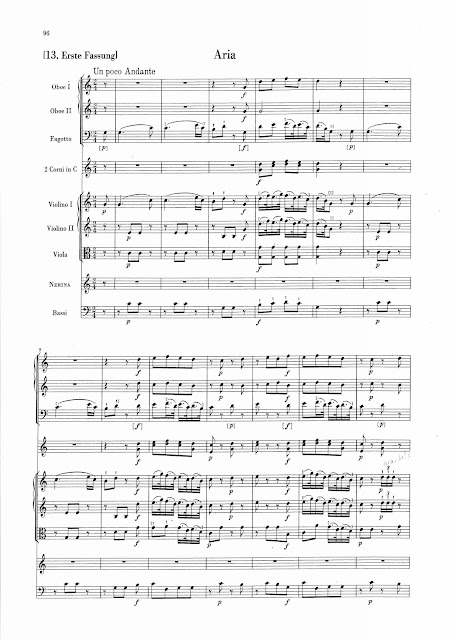

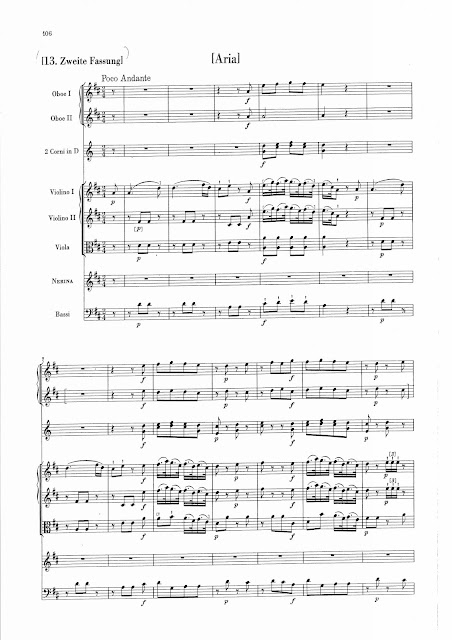
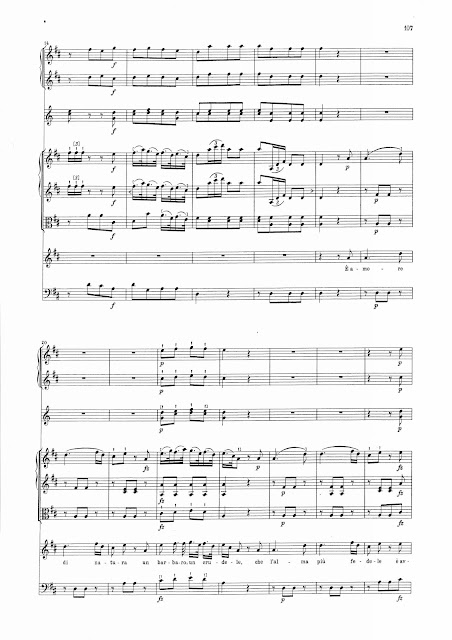







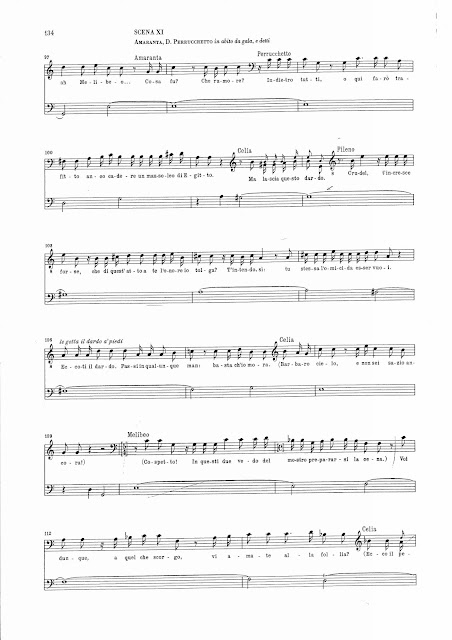










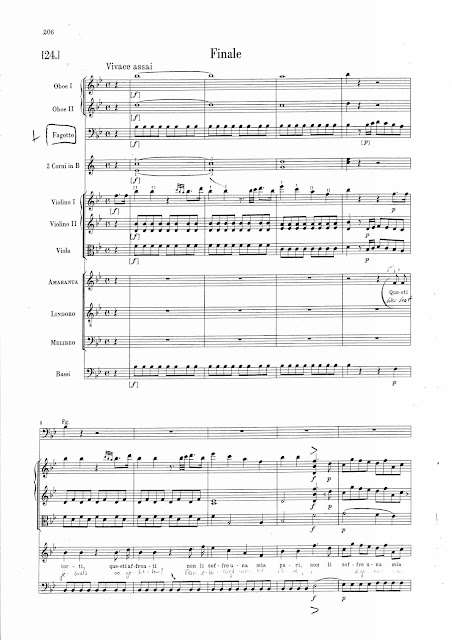










No comments:
Post a Comment